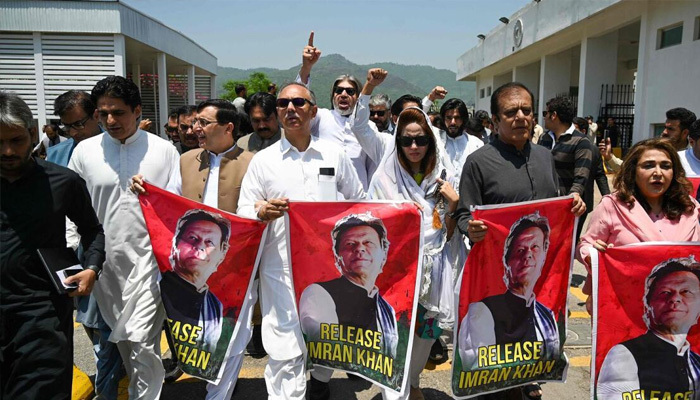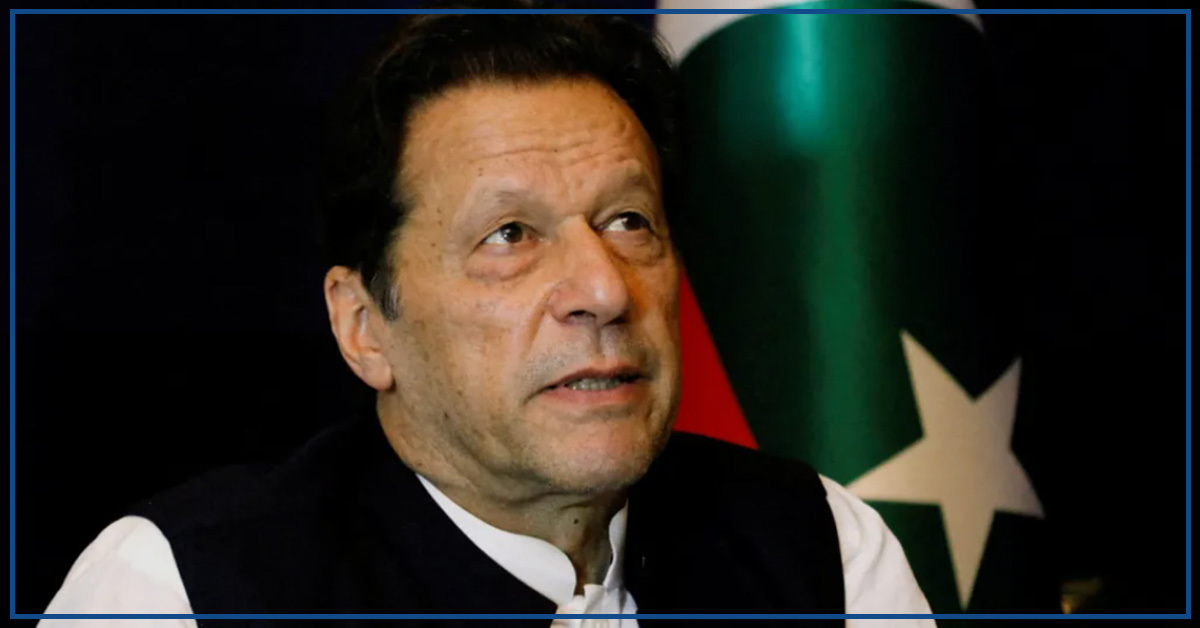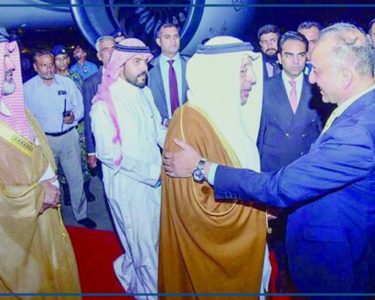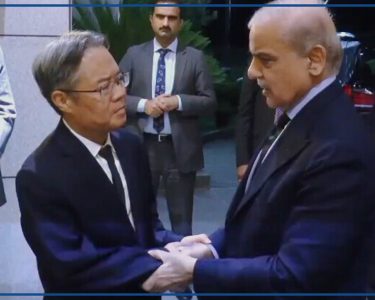Former Pakistani Prime Minister Imran Khan has now been incarcerated for a year, yet his influence remains palpable in the country’s political arena. Despite his absence from the public eye, Khan’s name continues to dominate headlines, and his supporters on social media have remained fervent in their advocacy.
Khan, who is allowed limited interaction with his family and lawyers, is portrayed as resilient and unbowed. According to his sister, Aleema Khanum, he maintains a defiant attitude, focusing on his cause rather than personal needs. Khan reportedly spends his time on an exercise bike, reading, and reflecting, seizing his imprisonment as an opportunity for self-improvement. However, his and his wife Bushra Bibi’s continued detention shows no sign of resolution.
Analysts suggest that Khan’s incarceration was anticipated. Michael Kugelman of the Wilson Center notes that Khan’s difficulties were expected given the military’s tendency to maintain a strong stance against political figures they wish to neutralize. The military’s influence has been a significant factor in Khan’s political journey, from initially helping him rise to power to his current imprisonment.

The former cricket star was arrested in May 2023 following his ousting in a no-confidence vote. His detention led to widespread protests, some of which turned violent, targeting military installations. Following his release, Khan faced further legal challenges and was re-imprisoned in August 2023 for failing to disclose the sale of state gifts. By early February, he had accumulated three lengthy prison sentences, with the latest being 14 years.
The PTI party, led by Khan, faced significant hurdles, including losing its recognizable cricket bat symbol, impacting its campaign efforts. Despite these obstacles, PTI candidates performed surprisingly well in the elections, surpassing rivals and forcing alliances to counter them. Nevertheless, the party’s ability to form a government was hindered, and its leader remained in jail.
Recent developments have seen some legal victories for Khan, including the nullification of his sentences, a UN panel’s declaration of his detention as arbitrary, and a decision by Pakistan’s Supreme Court to allocate reserved seats to PTI. However, these changes have yet to result in tangible improvements, with Khan and his wife still facing imprisonment and new charges.
The Pakistani government has signaled its intention to ban PTI, despite criticism from human rights groups. The military remains a crucial player, with statements from its public relations wing indicating a firm stance against those involved in the unrest.
For Khan to secure his release, analysts believe he must address his strained relationship with the military. Khan has recently called for the army to “stay neutral,” a statement interpreted by some as an olive branch, though he has previously criticized such neutrality. His recent calls for snap elections are seen by some as a bargaining chip with the military, though their feasibility remains uncertain.
Overall, Khan’s continued imprisonment and the ongoing political turbulence reflect the complex interplay of power and politics in Pakistan.





